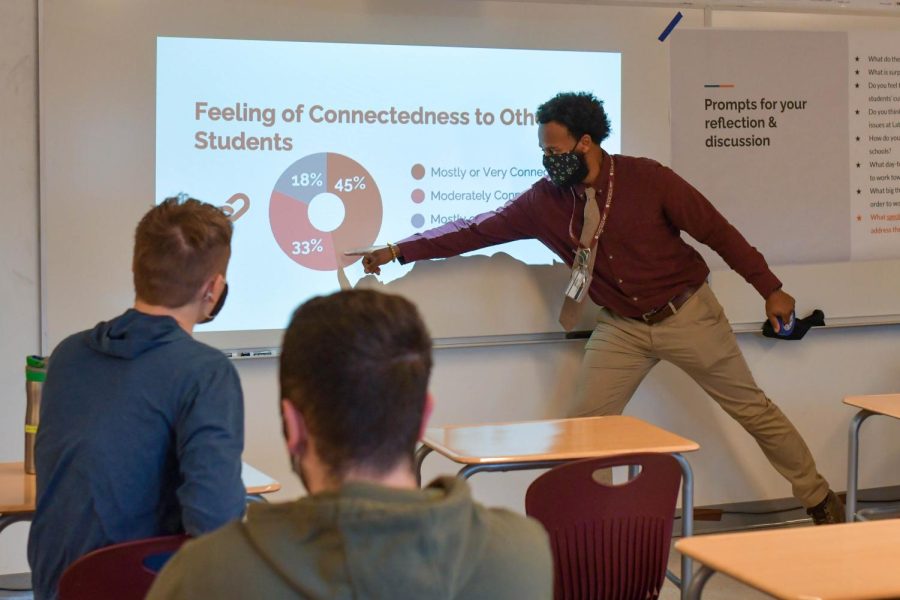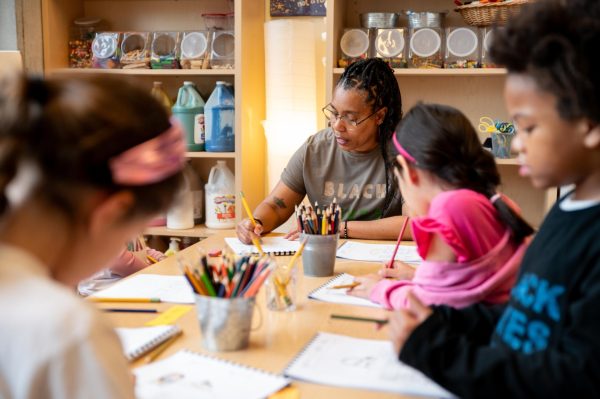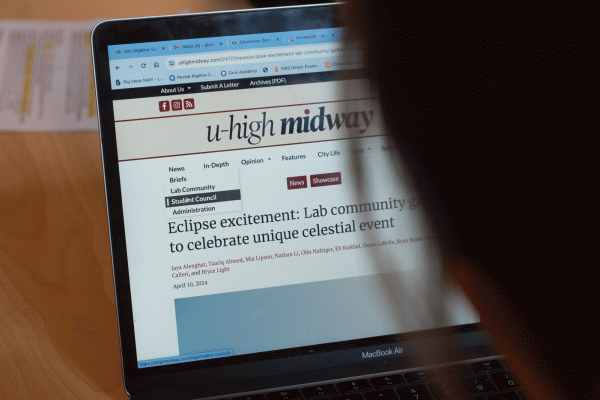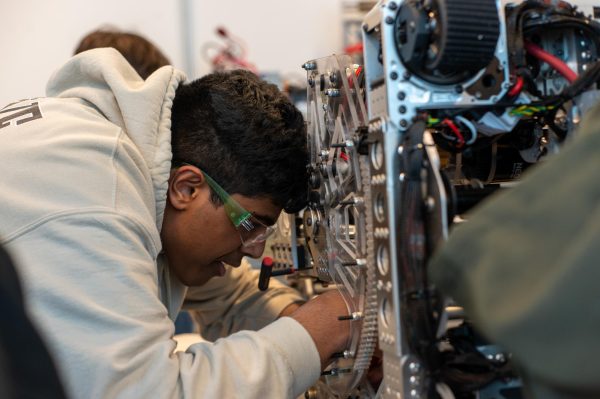Student customization, enthusiasm are priorities for wellness survey
Teddy Stripling discusses the results of the 2020-2021 health and wellness survey with a small group. This year’s survey will take place October 6th during assembly period.
September 22, 2022
Students will be able to weigh into the priorities of school support during the annual health and wellness survey which will be taken on Oct. 6 during assembly period. The survey was moved from spring to fall in part to utilize a third party administrator, Authentic Connections.
The changes are designed to allow for customization and to increase student enthusiasm toward participating.
Betsy Noel, director of equal opportunity services, said the old survey was built around risk-harm reduction and mitigating risk-tending behavior, while the new survey contains questions leaning more toward an individual’s feelings and experiences.
“We will have a better sense of the mental health and social and emotional experiences that are known to contribute to [risky] behaviors,” she said.
The administration is working to create custom questions pertaining to topics of significant influence, in order to most accurately reflect the experiences and views of participants.
Student input is one factor that has contributed to the implementation of changes and discussions on ways to better accommodate the student body.
“I’m very excited about the level of engagement that we’ve had with students this year,” Ms. Noel said. “Some of the feedback that they gave was what drove the decision to use this company, that takes it in a different direction.”
After the results of the survey are published, the platform will use the data points to develop possible plans and strategies to fit Lab’s needs.
Ms. Noel emphasized the importance of using a vendor like Authentic Connections to consider external factors that may impact an individual’s attitude toward unhealthy habits.
“They put more effort into the social emotional aspect that they feel drives a lot of those behaviors,” Ms. Noel said about Authentic Connections. “It’s sort of getting more to the root cause of the issue.”




















